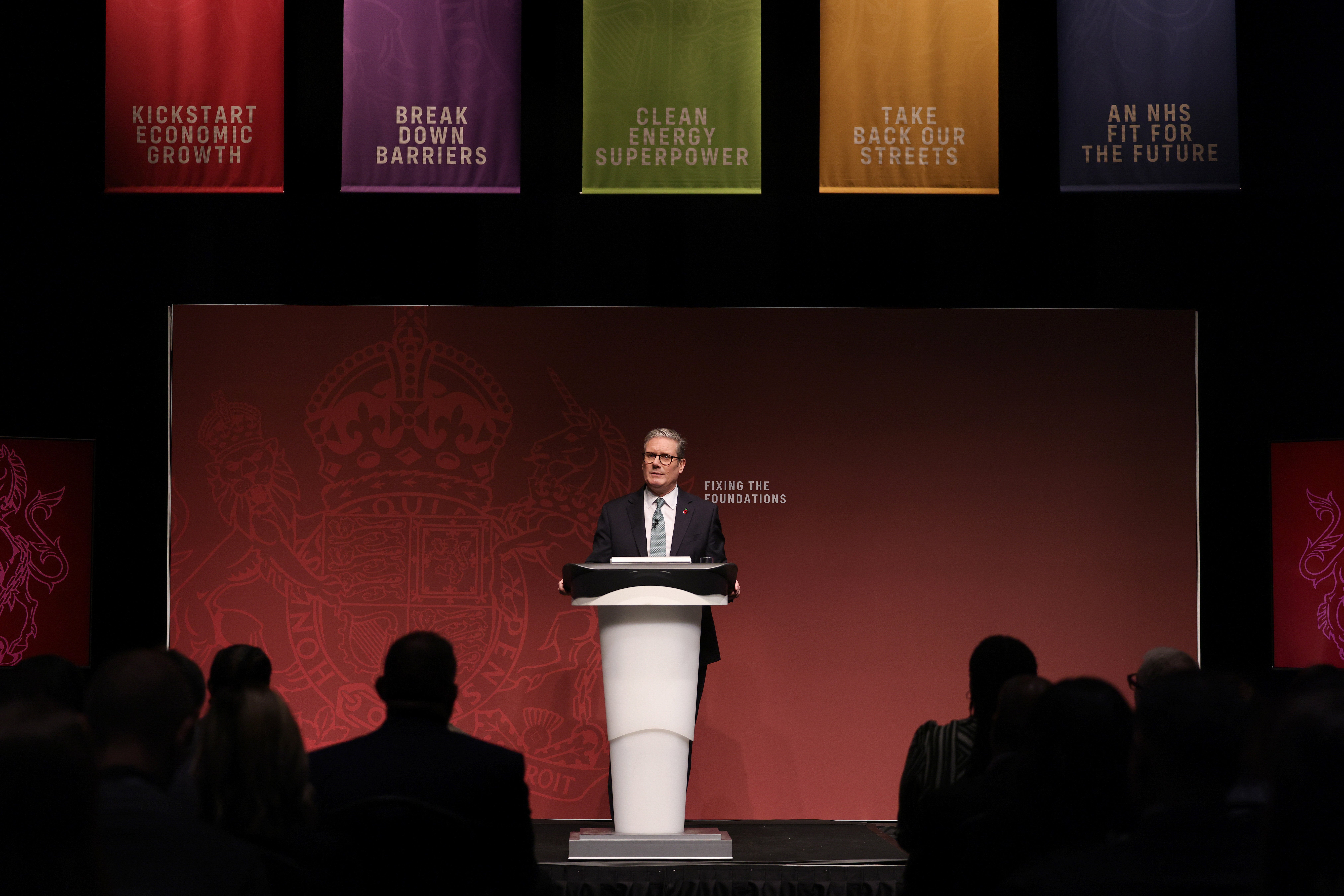The Labour mayor of Greater Manchester Andy Burnham has broken ranks with Sir Keir Starmer to reject controversial plans to raise the bus fare cap by 50 per cent.
The cost of a bus journey in the city will still be capped at £2, Mr Burnham has announced.
Sir Keir announced in a speech in Birmingham on Monday the maximum bus fare will rise to £3 in England until the end of 2025, in a bid to ease pressure on the public finances.
The hike will be announced at Rachel Reeves’ Budget on Wednesday as the government tries to plug a £22bn hole in the public finances.
But Mr Burnham said on Tuesday that Manchester would "proceed with our plan to introduce a new simpler, flatter fare structure based around a £2 single fare” at the start of January.
He added: “Because of the decisions we have taken, and the progress we have made, GM (Greater Manchester) is in a different position to other areas across England when it comes to bus funding and bus fares.”
Single bus fares in England have been capped at £2 outside London, where they are £1.75 per journey, for most routes since January 2023.
On Monday, the prime minister said he knows “how much this matters” but hit out at the previous Conservative government, saying they had “only funded £2 bus fares until the end of 2024”.
“That is the end of the funding in relation to a £2 capped fare,” he said. “That’s why I’m able to say to you this morning that in the Budget we will announce there will be a £3 cap on bus fares to the end of 2025 because I know how important it is.”
But the Liberal Democrats branded the change a “bus tax” that will hit small businesses and hold back economic growth.

The party’s environment spokesperson and former leader Tim Farron said: “While this new government has been left to make difficult choices, they cannot allow the burden of fixing the Conservatives’ mess to be on people and small businesses across the country.
“The fundamental issue that neither Labour nor the Conservatives before them seemed to understand is that for rural communities, it doesn’t matter if the cap is £2 or £3 if they don’t have a bus service in the first place.
“Bus routes are the backbone of economic activity in communities across our country – if the government is serious about growth then it would invest in services which will boost our struggling town centres and high streets.”
Meanwhile, Greenpeace’s senior transport campaigner Paul Morozzo said the decision “makes no political, economical or environmental sense whatsoever”, adding that it is a “‘tough decision’ the government did not need to make”.
Ms Reeves has already warned of a series of “tough” decisions she has had to make in her Budget.
The Department for Transport said maintaining the £3 cap until the end of 2025 would cost £151m, while the government was also providing £925m for local authorities and bus service operators to improve routes.
Transport secretary Louise Haigh, who is reportedly being hailed for winning a personal victory amid negotiations over the bus fare cap, said following the announcement: “Our bus revolution will give every community the power to take back control of their services, end the postcode lottery of services and turn the page on four decades of failed deregulation.”







